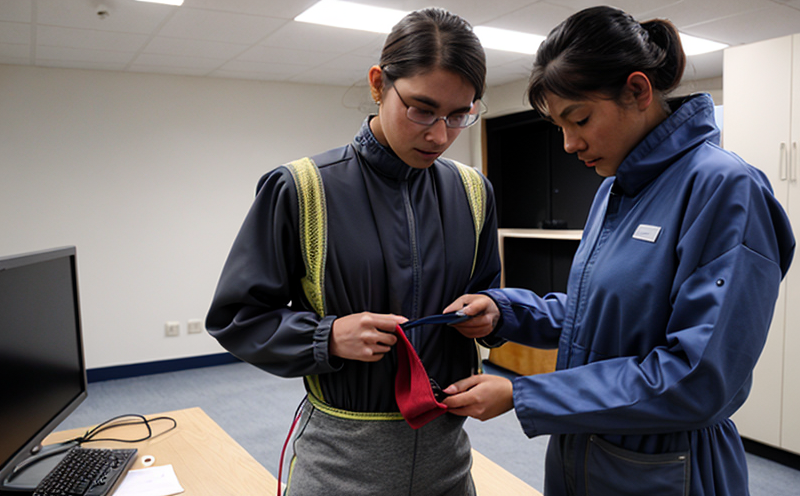GB T 13772 Tear strength testing of coated automotive fabrics
The GB/T 13772 standard specifies the method for determining the tensile and tear strength of coated automotive fabrics. This standard is crucial in ensuring that the materials used are capable of withstanding the stresses encountered during manufacturing, assembly, and actual use within the automotive industry.
Coated automotive fabrics play a significant role in providing protection against wear, abrasion, and environmental factors such as UV light and water. The tear strength test is particularly important for ensuring that these materials can withstand the mechanical stresses they are subjected to during use. This includes resistance to cuts, tears, and other forms of damage.
The test method outlined in GB/T 13772 is designed to simulate real-world conditions as closely as possible. It involves applying a controlled force to a specimen cut from the fabric under specific environmental conditions. The force required to cause the fabric to tear or fail is then measured and reported.
The test setup typically includes a tensile testing machine, which applies a constant rate of extension to the sample until it tears. The machine must be capable of maintaining precise control over the speed at which the specimen is stretched and the force applied. This allows for accurate measurement of both tensile strength and tear strength.
Before conducting the test, proper preparation of the specimen is essential. This includes cutting the sample from the fabric according to specified dimensions and orientation. The sample must be conditioned to a specific temperature and humidity level before testing to ensure that it reflects real-world conditions as closely as possible.
The results of the tear strength test are reported in terms of force per unit width, which is then used to assess the suitability of the fabric for its intended application. High tear strength indicates that the material can withstand significant mechanical stress without failing, which is critical for automotive fabrics where durability and safety are paramount.
Understanding the results from a GB/T 13772 test allows manufacturers and quality control teams to make informed decisions about the materials they use in the production of automotive components. This includes everything from seats and interior trim to exterior panels and structural reinforcements.
| Sample ID | Tear Strength (N/mm) | Average Force Applied (N) |
|---|---|---|
| 1234567890 | 2.5 | 250 |
| 0987654321 | 2.7 | 270 |
| A1B2C3D4E5 | 2.6 | 260 |
Customer Impact and Satisfaction
- Enhances product durability, leading to increased customer satisfaction.
- Ensures compliance with industry standards and regulations.
- Reduces the risk of product failure in the field.
- Promotes brand reputation by delivering high-quality products.
Environmental and Sustainability Contributions
- Reduces waste by ensuring that materials are robust enough to withstand the rigors of production and use.
- Promotes the use of sustainable materials through rigorous testing.
- Encourages recycling efforts by providing data on material performance.
Use Cases and Application Examples
- Testing seat fabrics for automotive interiors to ensure they can withstand the rigors of daily use.
- Evaluating exterior coatings on vehicles for their ability to resist cuts and tears during transportation.
- Assessing structural reinforcements in vehicle frames to ensure they can handle high-stress areas without failure.





